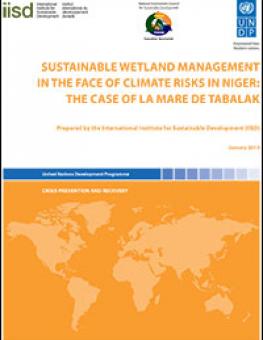
Sustainable Wetland Management in the Face of Climate Risks in Niger: the Case of La Mare de Tabalak
Niger's wetlands are critical to poverty reduction, food security and biodiversity conservation, especially given the limited the irregular rainfall and the amount of land suitable for agriculture.
La Mare de Tabalak, a wetland in the arid zone of Niger, and its inhabitants are already dealing with the cumulative effects of recurring droughts, a trend expected to increase with climate change. The co-management of the wetland among all actors within the watershed (not just those closest to the wetland) should be prioritized to protect this ecosystem in the face of climate variability and change. Validation and further analysis of the climate projections for the country are necessary to improve decision-making. Women play a key role in the socio-economic development of wetlands, but tend to be poorer than men. Ensuring that men and women have the same opportunities and rights while recognizing their different interests, needs and responsibilities can help alleviate poverty and improve resilience of households and communities to climate hazards.
Additional downloads
You might also be interested in
Climate Risks, Vulnerability and Governance in Kenya: A review
Climate-related risks adversely affect the lives and livelihoods of the people of Kenya and threaten the country's near- and long-term development prospects. The paper provides sector-specific recommendations to address knowledge gaps and general recommendations to strengthen response capacity.